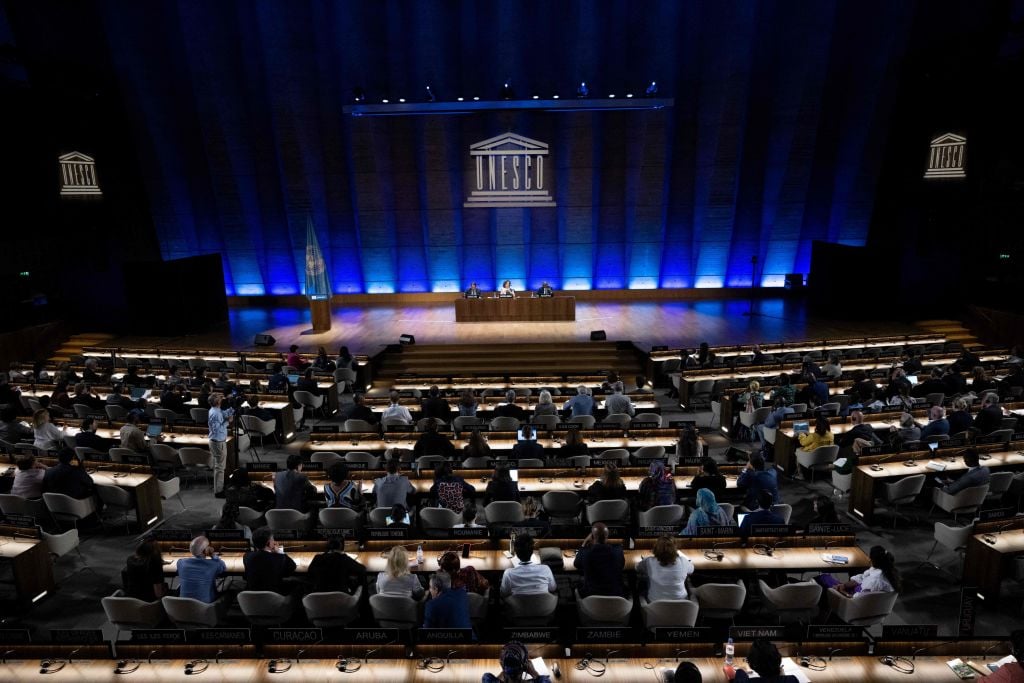
After a three-and-a-half-year absence, the United States will rejoin the United Nations Educational, Scientific, and Cultural Organization, better known as UNESCO.
Late last week, the organization’s member states gathered in Paris for an “extraordinary session” to consider a proposal for readmittance put forth by the U.S. The two-day meeting concluded on Friday with a vote that saw 142 of UNESCO’s 193 members participate.
Of those, just 10 states voted against the U.S.’s proposal, while 132 voted in favor. The U.S. will officially become a member again later this month.
“I am encouraged and grateful that [UNESCO] members have accepted the U.S. proposal that will allow us to continue steps toward rejoining the organization,” U.S. Secretary of State Antony Blinken said in a statement shared on Twitter. “The United States is stronger, safer, and more prosperous when we engage with the rest of the world.
Among the dissenting voters were countries with which the U.S. has strained relations, including Russia, Belarus, Iran, North Korea, and Nicaragua. Another oppositional vote came from China, which Biden specifically cited as a reason to rejoin UNESCO due to the country’s growing international influence.
In March, Under Secretary of State for Management John Bass said that re-entering the organization would “help us address a key opportunity cost that our absence is creating in our global competition with China.”
“If we’re really serious about the digital-age competition with China, from my perspective, in a clear-eyed set of interests, we can’t afford to be absent any longer from one of the key fora in which standards around education for science and technology are set,” Bass added.
As part of the proposal, which was delivered on June 8, the Biden Administration agreed to repay UNESCO the estimated $619 million the country owes in arrears. The hefty sum comes from years of unpaid dues that have added up since 2011, when then-President Barack Obama cut contributions to the organization because it voted to admit Palestine as a member.
In October 2017, the Trump administration announced plans to wholly withdraw from UNESCO, pointing to those unpaid dues and the organization’s “anti-Israel bias.” The U.S. officially ceased membership at the end of 2018.
Trump’s UNESCO position echoed that of former President Ronald Reagan, who similar withdrew the U.S. from the organization in 1984. The country again became a member in 2002, as the Bush administration sought to ease diplomatic relations amidst the “War on Terror.”
“It’s a great day for UNESCO and for multilateralism,” UNESCO Director-General Audrey Azoulay said upon the U.S. being readmitted to her organization last week. “Building upon the momentum achieved in recent years, our Organization is once again moving towards universalism with this return of the United States.”